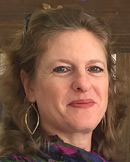
The growing trend of shifting from classroom to distance learning in ethics education programs raises the need to examine ways for adapting best instructional practices to online modes. To address this need, the current study is set to apply a social constructivist approach to an online course in research ethics and to examine its effect on the learning outcomes of science and engineering graduate students.
AugmentedWorld is an open, collaborative, and interactive location-based platform, purposefully designed to provide science teachers and students an online tool for generating multimedia-rich questions. It is based on the notion that questions are the source of all knowledge and that students should be skilled in generating questions and not only in answering them. Our goal is to examine the cognitive and social impact of AugmentedWorld on science teachers and students.
At the brink of the fourth industrial revolution, a significant transition is taking place from simple digitization to innovation-based technology. Innovation, the process of generating new ideas and transforming them into practical solutions, is a catalyst for progress in our fast-changing world. The goal of our study is to assess the innovation level of engineering students’ team projects and to examine the relationships between project innovation and team heterogeneity in online and F2F environments.
Funded by the Israeli Ministry of Science, our goal is to identify contemporary ethical issues related to AI research and development, generate contextualized case-based modules, and examine their effectiveness among university students and AI developers. Appling a mixed-methods design, data will be collected via systematic review of literature, interviews, case-based activities, and questionnaires. We will outline implications related to biased AI systems, contributing to ethical use of digital data, highlighting the significance of AI ethics.